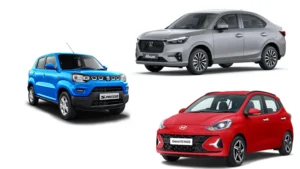Cost of Charging an Electric Car: Gaining recognition owe to their environmentally friendly features, electric vehicles commonly referred to as EVs are quickly transforming the transport sector in India. However, as much as potential customers are attracted to these vehicles, they never want to pay the price when charging such cars.
Which charging types are available – at home, in the public domain, and at work – is crucial information for every person who is thinking about the purchase of an electric vehicle. This article will outline the cost of charging an electric car in different cities, and the features of the chargers, so it will be easier for you to keep your EV fully charged.
How do I charge my electric car?
Today, there are several choices to charge an electric car, so every driver can choose what is suitable for him or her. One need not charge the car only at their home now. Public charging stations have expanded beyond simple home charging and now has a quick charging service even while at work. These three options are as follows, that makes each of them suitable according to the convenience, speed, and cost factors. It is explained below:
1. Charging at Home
As we shall soon see, the best and likely the most frequent way of charging EVs is at home. Before you can begin charging your EV, you’ll either need any ordinary wall socket or a dedicated EV charging station. Standard sockets might be sufficient for occasional charging, but dedicated chargers can reduce charging time significantly.
In most cases, EV owners charge their vehicles overnight or when they park their vehicles for long periods. With this method, many utility providers offer off-peak electricity rates, allowing for easy access and savings. Furthermore, home charging has comfort, as one does not need to look for the charging stations and one’s car is always charged.
There will likely be requirements that you will have to consult with your local electricity provider for the necessary connections; possibly requiring alterations to the wiring of your house before you can start with the installation of home charging services. You should also need to ensure safety to the charging systems such as having circuit breakers and surge protectors among others.
2. Charging at Workplace
As part of sustainable transportation, many businesses are now beginning to look into opportunities for workplace charging. To support their need, employees are able to plug their electric cars at charging points provided close to workplace parking area. The outcome of the arrangement has the following potentials for the employees as well as employers. Employees can charge during working hours or during their break time to have enough capacity to get home without having to use a public charging supplier.
Charging stations are also very useful for employers who wish to attract employees who are conscious of the environment and add to their sustainability energies. Accessibility and charging speed of workplace charging setups can vary. Depending on the employer, some might provide free charging as an employee perk, while others might charge a nominal fee.
Additionally, workplaces often install chargers with quicker charging capabilities, so employees can take advantage of their time at work. The demand for electric vehicles will continue to grow, as will charging options at home, in public places, and at work, making switching to electric easier for everyone.
3. Charging at Public Stations
In urban areas and highways, public charging stations are popping up everywhere, providing a much-needed boost for electric vehicle users. For quick stops or longer journeys, these stations typically offer a mix of fast and regular charging options.
Most public charging points are situated close to shopping centres, parking, and highways so that the drivers can charge their automobiles while they shop or travel. A few stations have interfaces where one can easily start as well as view the charging process hence are friendly to the users.
You can also monitor the charging of your vehicle in real-time with some of the public chargers available on the market. This might take a relatively shorter or longer time depending on the type of charger in place to charge the battery. It is compact to handle, and these chargers have a lot of power output in terms of time which is perfect for the people who are always on the move.
Electric Car Charging Costs in India
The cost of charging an electric car is cheaper than fueling with gasoline and costs differs based on region, electricity charges, and the charging station used. The following is a breakdown of average charging costs in major Indian cities, along with their sources:
- Delhi: Charging at public stations typically costs between ₹4.5 to ₹8 per kWh (Source: Delhi Government Electric Vehicle Policy).
- Mumbai: Prices range from ₹7 to ₹15 per kWh for public charging (Source: Brihanmumbai Electric Supply and Transport).
- Bangalore: You will be charged about ₹6 to ₹10 per kWh at public charging stations (Source: Bangalore Electricity Supply Company).
- Chennai: Costs for charging vary from ₹5 to ₹9 per kWh (Source: Tamil Nadu Generation and Distribution Corporation).
It is typical to pay between ₹6 and ₹12 per kWh across the country. For instance, charging a 40 kWh battery fully could cost between ₹240 to ₹480, making it more economical than traditional fuel prices. Additionally, the growing network of charging infrastructure is resulting in more competitive pricing across different regions.
Electric Car Charger Types
There is no one size fits all package of charging for electric cars. It is possible to choose one charger depending on the speed of recharging the EV, as well as the location of the user because chargers of different types differ in their speed and prices. Depending on the power level of the chargers there are mainly three eliminations; the Rapid Chargers, Fast Chargers and the Regular Chargers are the ones prevalent in India. All are helpful in one way or the other when it comes to charging the vehicle. India has three main types of chargers:
- Rapid Chargers: These are commonly found in public charging points and make use of DC (Direct Current) technology. These take between Thirty minutes to one hour to charge your EV to eighty percent; you can use them to add charge during a long drive, for instance On the go EV drivers rely on them due to their efficiency.
- Fast Chargers: Provided at most public stations and offices, fast chargers use AC (Alternating Current) and takes 2 to 5 hours to make your vehicle battery full. This means that the vehicles are perfect for short and long distance journeys all in one.
- Regular Chargers: As for these chargers, most users employ it at home and as is known they are the slowest. A regular charger generally takes 6 to 12 hours to fully charge, hence suitable for use when the car is left parked for long and especially overnight. Easy to use, they cross over well with existing daily activity.
Owners of electric vehicles may choose the right charger based on their use and frequency of charging. These chargers offered have unique features to suit a specific need; therefore should select the appropriate one that would serve their needs best.
Also read: 10 Best Cars For Beginners in India
Conclusion
The cost of charging an electric car is cheaper than that of fuel in India, which makes it much more suitable for conservation enthusiasts. The initial cost of an EV might hurt the pocket a bit, making your facial muscles flinch, but the efficiency that one can get in terms of fuel consumption, not forgetting the various subsidies granted by states across the country, as well as the minimal overall cost of running the vehicle, makes it a worthy investment.
The use of electric cars is gradually becoming more possible due to increased installations of charging stations all over the country. Thus, if you decide it is time to start saving the planet or your wallet, driving electric might be for you.
FAQs on Cost of Charging an Electric Car in India
How Can You Find the Nearest Public Charging Station for Electric Cars?
The nearest public charging stations for electric cars can be located using apps such as PlugShare, ChargePoint, or Google Maps.
How Often You Must Charge Your Electric Cars?
For optimal battery health, you should recharge your electric car whenever the battery level reaches 20%-80%.
How Safe Is It to Charge Electric Cars at Home?
Electric cars can be safely charged at home, especially if a charging station is installed correctly and electrical safety standards are observed.









